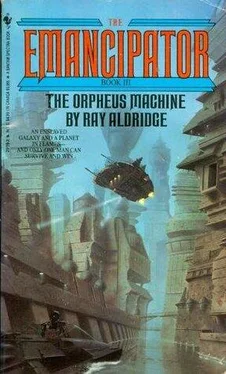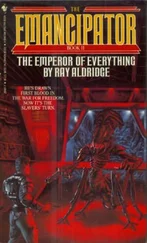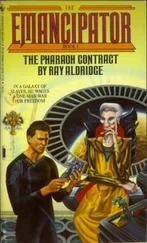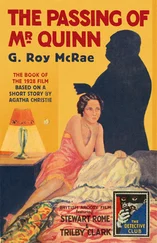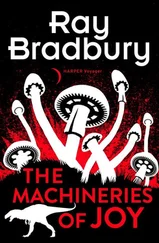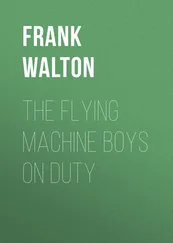Ruiz reached up to the whaleback’s rail and heaved himself aboard. “Thanks,” he said. What meeting? He wondered how he could find out without revealing his ignorance: suppose this were an invitation-only affair? “So, why aren’t you at the meeting?”
The man spat overboard and produced a flask of some pungent liquor from his pocket. “Someone got to watch the boat. Besides, it’s all shit; I wouldn’t have gone anyway. What are they going to do about the war? Tell the Lords they don’t want to fight anymore? That too many of us are dying? Shit, that’s all it is. If we won’t fight for the Lords, they’ll kill us and carry on with their house troops. Shit.”
“I can’t say I disagree with you,” said Ruiz.
The man looked a bit confused, as if he found Ruiz’s position difficult to analyze, but after a moment of brow-furrowing concentration he apparently abandoned the effort and shrugged. “Well. We cast off an hour before midnight — better be back before then to move your boat.”
“I will,” said Ruiz. “Thanks again.”
The man nodded and went below, closing the hatch with a clang.
Ruiz entered the Spindinny with an increasing level of apprehension. The war must be particularly bloody if the mercenaries were considering a strike.
Inside the Spindinny, killmechs manned an armored security cage, and their red-glowing optics locked on him as he passed. Otherwise the warren was silent, an eerie thing in that place of eternal debauchery.
Ruiz went down to the hiring hall, where the Spindinny maintained its computer facilities.
The hall was empty, except for one proctor, who gave Ruiz a suspicious glance. “What are you doing here? The meeting’s in the sub-basement auditorium.”
The proctor was a thin gray man with a grafted-on third arm protruding from his chest. At the moment, the central arm held a bowl of soup; his other two arms were crumbling crackers into it.
Ruiz took off his helmet and assumed an expression of innocent confusion. “I don’t know anything about a meeting. I just got to town this morning; what’s going on?”
The proctor snorted and started spooning up his soup. “‘Just got to town’? You can look forward to some surprises, then.”
“Really?”
“Really. SeaStack is a grave. Do you claim you didn’t notice?”
“No…. I saw the scars — and the stacks are silent. Is there no work, then?”
The proctor laughed, spraying a bit of soup from his mouth. “Oh, there’s plenty of work, but you might want to wait for a bit before you sign up for it.”
“Really?”
“Really. Really. Is that all you can say? Never mind. Go down to the sub-basement and listen to the fools at the meeting.” He went back to his soup, ignoring Ruiz pointedly.
“All right,” said Ruiz, striving for just the right note of uncertainty.
He put his helmet back on and scuttled out.
A RUSTY STEEL lift cage lowered Ruiz into the sub-basement, where plumbing and other conduits striated the damp meltstone walls and a smell of ancient garbage filled the stagnant air. Ruiz heard a deep murmur and followed it to the doors of the auditorium.
Inside, the lights were bright. Hundreds of mercenaries milled about, shouting and shoving. Ruiz sidled along the back wall, trying to be as unobtrusive as possible, and found a spot from which he could watch. The crowd was a sea of garish color, twinkling with the glitter of well-kept weapons. An odd stink — composed of unwashed bodies, gun oil, raw alcohol, and ozone — hung thick in the room.
On a platform at the far end of the hall a tiny woman in chromed servo-armor stood at a podium, waving her arms and screeching in a thin piping voice.
“Order!” she shrilled. “Order!” No one paid any attention to her.
A half-dozen other persons sat in a row of chairs behind her. When a scuffle broke out in front of the platform, a large man with a naked tattooed torso and several metal heatsinks protruding from his shaven skull, rose slowly and massively from his chair. He stood looking down at the two scufflers for a moment. When they fell and began to roll around on the floor, he drew a graser from a calf holster and cut them into four parts, which clutched at each other for a moment longer and then subsided into aimless twitching.
The hall fell silent, except for the rattle of drawn weapons and the snick of safety levers.
“Thank you, Sergeant-at-Arms Mondawber,” said the little woman in a tone of irritable satisfaction. “I hope no more such disciplinary acts will be necessary. The Lords wouldn’t really mind much if we chopped each other up.”
A mutter of agreement ran through the hall, accompanied by the sounds of weapons being returned to holsters.
“Now,” she continued. “We have speakers pro and con. Give them your attention, so you can convey their arguments to your constituents.”
A tall Dilvermoon herman in a flowing crimson robe approached the podium. It carried a thick sheaf of paper, and a groan rose from the crowd of mercenaries.
It smiled disarmingly. “No, no,” it said. “You mistake me. These aren’t notes, they’re handouts — so you won’t strain anything trying to remember what I’ve said.” It handed the papers down to the crowd, as low laughter ran around the room.
The herman waited until the handouts had circulated to the far corners of the hall. Ruiz took his in a gauntleted hand and read: “Why We Must Withdraw Our Forces From SeaStack.”
The herman cleared its throat. “This is the situation: Our units have all suffered losses far in excess of acceptable rates. Under these conditions, our contracts — most of them, anyway — specify that our pay must increase to a mutually acceptable level, in compensation for the increasingly hazardous working conditions. If our employers are unwilling or unable to raise our pay, we’re entitled to withdraw from our contractual commitments.”
“They’ve upped the pay,” shouted someone from the floor.
“No… they’ve promised higher pay — an important distinction,” said the herman. “They cannot deliver on these promises until the situation in the city stabilizes.”
It shook its handsome head. “They’ll never deliver; this is my opinion. Furthermore, I think the Lords have gone quite thoroughly mad and intend to fight over their obscure treasure until no one in SeaStack is left alive — except the victor. Dead persons cannot benefit from high pay.
“If we wish to survive, we must withdraw our forces from the pirates’ strongholds. If necessary, we must fight our way out of SeaStack — or we’ll all be dead in a week or two.
“This is my argument — and I think it irrefutable.”
The herman sat down, to a renewed babble of contention. The large tattooed man started to get up again, but the babble ceased and he settled back with a glower.
A woman with a tangled mane of white hair and a face like a nicked ax stepped to the podium. “My argument is even shorter. We must continue to fight for our employers, even if it means we must die. That is our function in the universe, and we must not deny it. If we die, we die — but if we slink off, our way of life will begin to die. Who will hire mercenaries if mercenaries cannot be depended upon to honor their contracts?” She sat down amid a chorus of hooting laughter and hisses of derision.
“Dupe!” someone shouted.
“Pirate’s dog,” shouted another anonymous voice. The white-haired woman stared stonily ahead.
Another woman stepped forward. She wore light armor of an opalescent lavender color, and when she raised her visor, Ruiz was startled to see the pale lined face of Diamond Bob, once the proprietor of a well-respected slave kennel.
“Well,” said Diamond Bob. “I can’t agree with that sentiment. Mercenaries are mercenaries. They fight for pay, but when no hope exists that they will live to spend that pay, intelligent mercenaries ‘slink off.’ Every time. Our employers are aware of that tradition, you can be sure.
Читать дальше
